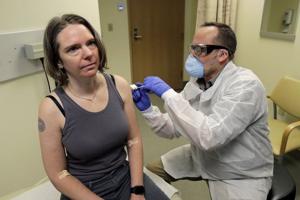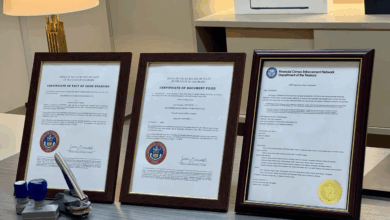Initiative submitted to Washington state lawmakers proposes free COVID-19 vaccinations as state struggles with rollout

(The Center Square) — An initiative submitted to the Washington legislature seeks free vaccines for Washingtonians as the state’s slow rollout of first doses continues.
The Washington Vaccinations, Infectious Disease Data, and Affirmative Action Policies Initiative would require the state to provide COVID-19 vaccinations to all at no cost and prohibit discriminatory public health and safety measures.
It also requires the state to publicize infectious disease data 60 days after the end of a public health emergency.
Current state and federal guidelines direct health insurance companies to cover the cost of COVID-19 testing and vaccinations, but health care providers can still opt to charge fees for office visits and receiving a vaccination.
The state’s uninsured rate in 2019 held steady at around 6.1%, according to the Washington Office of Financial Management.
The COVID-19 vaccines from Pfizer and Moderna being distributed in Washington and worldwide are approved for older teens and adults administered through a two dose regimen taken three weeks apart.
They are estimated to offer around 50% protection after one dose and as much as 95% protection a week after the second dose. Immunity is expected to last as long as a year.
Under Phase 1a of Washington’s vaccine distribution plan, the state is prioritizing health care workers and long-term care facility staff and residents for inoculation.
The Washington Department of Health estimates as many as 500,000 people may be included in this first tier out of the state’s 7.5 million people.
State health officials reported during a press briefing last Wednesday that less than 20% of the state’s COVID-19 vaccine doses on hand—or 59,491 doses—had been used up.
The Pfizer vaccine can be stored for up to 30 days in ultra-cold thermal shippers while the Moderna vaccine can be stored for the same period of time in a regular freezer. Neither vaccine can be refrozen once expired.
State health officials have not determined what people will be eligible for Phase 1b, but agricultural and retail workers may be among them, officials said.
The clock is ticking to use up the state’s doses and state health officials know it.
DOH officials have since announced the state will launch an online “Phase Finder” tool for Washingtonians to sign themselves up for a vaccination which is requires them to disclose such information as their age, condition, and occupation.
Department leaders acknowledge the platform is essentially an honor system.
“We don’t have a good system set up to easily create verification, so we want to err on the side of vaccine getting into arms,” Acting Assistant DOH Secretary Michele Roberts told the Seattle Times on Thursday.
CDC officials and other medical experts are divided on how many Americans will need to be vaccinated to break the chain of transmission for COVID-19. White House Chief Medical Advisor Dr. Anthony Fauci has suggested the benchmark may be as high as 75% of the country.
On January 3, DOH data showed the state’s total caseload to date has swelled to 255,396 while the death toll has climbed to 3,459 people. DOH officials reported Sunday’s current case numbers could include up to 1,700 duplicates due to incomplete test results.
Among the 19 initiatives submitted to Washington lawmakers on the December 31 deadline are proposals placing a ban on carbon taxes, ending physical restraints and seclusion as punishment for school children, and prohibiting state and local income taxes.
Washington’s state constitution bans personal income taxes, though cities like Seattle have passed payroll taxes which critics have likened to an income tax.
Another initiative, the Washington Create Floyd’s Law and Review Panel for Police Oversight Initiative, encourages citizens to record police conduct and allow them to intervene if they feel an officer is using excessive force on a person.
In Washington, initiatives to the legislature are measures introduced by citizens and submitted directly to state lawmakers after gathering a necessary number of signatures.
The number of signatures needed to get an initiative to the November 2021 ballot is around 323,000 or 8% of the votes cast in Washington’s gubernatorial race in 2020.
State lawmakers may adopt initiatives as law, fail to act on them, reject them, or propose alternative initiatives. Any failed or alternative initiatives are sent to the ballot at the next general election.
Washington lawmakers will convene on Monday, January 11 for a mostly virtual 2021 session following a planned protest by state militia, among other groups.
Disclaimer: This content is distributed by The Center Square

